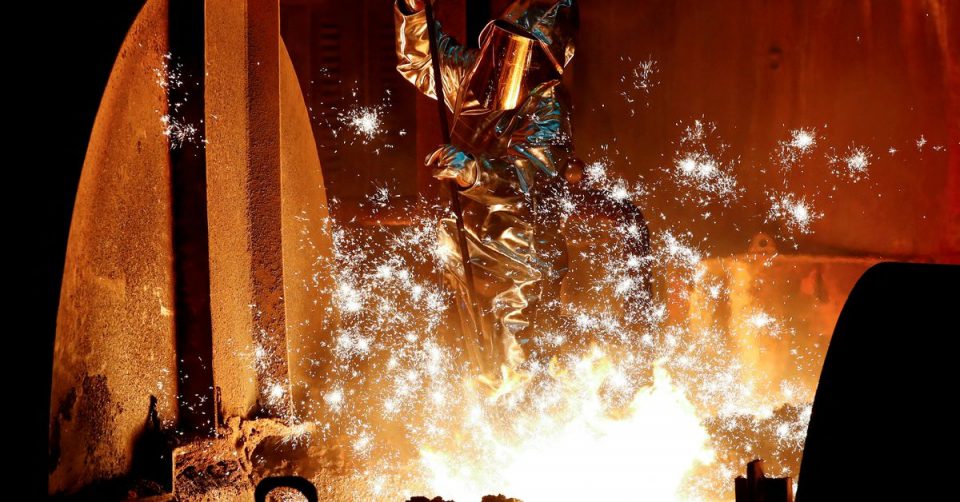A steel worker for Germany’s industrial conglomerate ThyssenKrupp AG takes a sample of raw iron from a blast furnace at Germany’s largest steel factory in Duisburg, Germany, January 28, 2019. REUTERS/Wolfgang Rattay/File Photo
Register now for FREE unlimited access to Reuters.com
Register
FRANKFURT, Feb 10 (Reuters) – Thyssenkrupp (TKAG.DE) said on Thursday that operating profit rose nearly fivefold in its first quarter, as its two biggest divisions – steel and materials trading – benefited from significantly higher steel prices.
Larger rival ArcelorMittal also pointed to tailwinds from higher selling prices thanks to a recovering global economy and higher demand for steel. read more
Thyssenkrupp’s adjusted earnings before interest and tax (EBIT) came in at 378 million euros ($432 million) in the October-December period, the first three months of the group’s fiscal year, up from 78 million a year earlier.
Register now for FREE unlimited access to Reuters.com
Register
Free cash flow before M&A, however, was a negative 858 million euros due to a rise in working capital related to “ongoing bottlenecks in the supply chain with the resulting delays in customer call-offs,” the company said.
“We had a good first quarter,” Chief Financial Officer Klaus Keysberg said. “But we’re still not where we want to be which is why we’re not letting up and continue to work at full speed on implementing our plan.”
The group, which makes everything from car parts to submarines, continues to expect full-year adjusted EBIT of 1.5-1.8 billion euros and free cash flow before M&A to break even.
Shares in the company fell as much as 3%, giving up earlier gains as supply chain fears and concerns over the negative free cash flows outweighed positive results.
Adjusted EBIT at the group’s steel division, which could be spun off at some point but not this year, increased sixfold to 124 million euros, as higher selling prices offset a strong rise in raw materials and energy costs.
Meantime, Thyssenkrupp’s automotive technology unit struggled with an ongoing shortage of semiconductors, causing operating profit to fall by two thirds in the period.
($1 = 0.8750 euros)
Register now for FREE unlimited access to Reuters.com
Register
Reporting by Christoph Steitz and Tom Kaeckenhoff
Additional reporting by Anika Ross
Editing by Arun Koyyur and Mark Potter
Our Standards: The Thomson Reuters Trust Principles.


